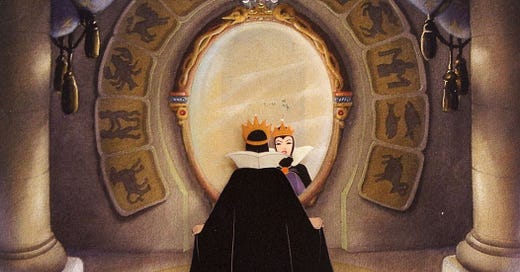The Mystery of False and True Mirrors: Discovering Yourself in a Loving Gaze
Thwarted identity is always the result of looking into the wrong mirror.
In C.S. Lewis’s Perelandra, Weston, possessed by the “Un-Man,” gives the Eve-like Tinidril a mirror as part of his scheme to tempt her into disobeying Maleldil. In many folk tales and myths, mirrors serve as portals into some dark magic. What is the mystery behind mirrors?
Incidentally, the evil angels mentioned in the apocryphal Book of E…
Keep reading with a 7-day free trial
Subscribe to Philosophy of Language to keep reading this post and get 7 days of free access to the full post archives.




